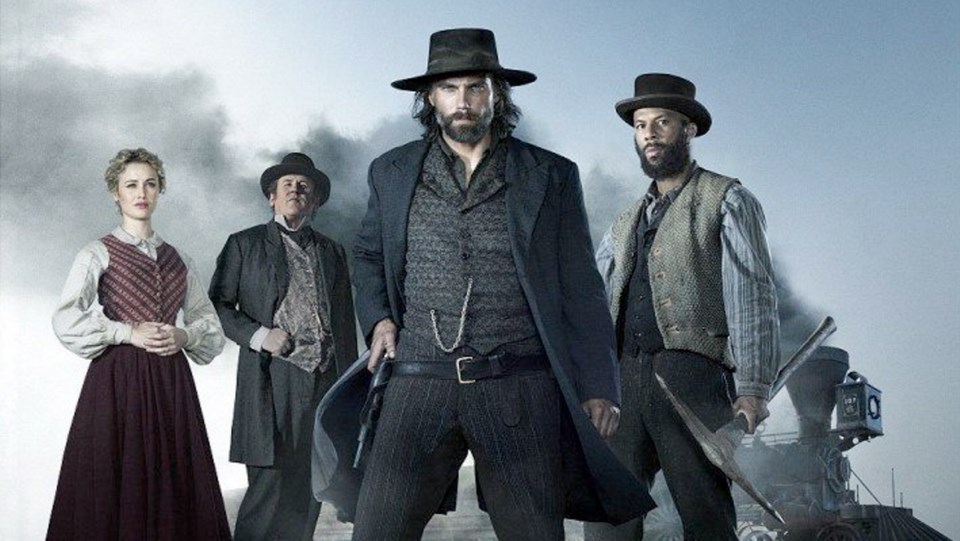Hell on Wheels reaches the end of the third season’s road, with miles to go on Union Pacific’s push to lay railroad track through the Rocky Mountains and, behind the scenes, with the show’s future up in the air.
The Calgary-filmed western shifted in tone this past season — different writers, same characters — but it remained potent. Hell on Wheels takes its western roots seriously.
With its gritty, topical subject matter — racial tensions, blind ambition, corporate greed and revenge vs. redemption — Hell on Wheels was never going to be one of those facetious TV westerns, such as Alias Smith and Jones, where every so often the characters shoot a knowing wink and aside to the camera, as if to say they know the story is silly and what they’re saying is dumb. Hell on Wheels gets down in the dirt and grime — literally — and shows the building of a transcontinental railroad as it must have been: hard, backbreaking work, slow and plodding, one rail at a time, set against a backdrop of big sky and rolling plains.
Tonight’s season finale finds lonely man Cullen Bohannon facing the consequences of his recent actions, and actor Anson Mount has rarely looked more fitting in the role. Bohannon was always a man hell-bent on getting results, no matter the cost, but results often come with consequences.
In the town of Cheyenne, meanwhile, scheming railroad baron Thomas (Doc) Durant (Colm Meaney) faces Gen. Grant and the Union Pacific board, with his future — and that of the railroad — up in the air.
As a genre, the TV western has fallen on hard times of late. It’s hard to imagine a time when there were more westerns on primetime TV than cop shows, medical dramas and court procedurals put together, but it happened. In just one year, 1959, there were 26 such programs — on just a handful of major networks, and no cable channels to choose from.
Hell on Wheels is one of the few present-day TV westerns set in the past. The more successful westerns, Heartland, Longmire and Justified, are set against the traditional western backdrop of mountains and prairie, but their stories are based in the here-and-now. Hell on Wheels is unique. It’s based in the past, and yet it remains compelling to watch.
The past season’s episodes have lacked the elegiac arc and majesty of Hell on Wheels’ earlier seasons, which were more serialized and told the tale of loner Cullen Bohannon’s quest for revenge for the murder of his family during the Civil War. The recent season’s stories have been more self-contained — a standoff against a rogue clan of Mormons one week, a cholera outbreak the next — but Hell on Wheels’ sense of time and place has remained undiminished.
Hell on Wheels’ fate looks uncertain. AMC has not announced whether there will be a fourth season, and it doesn’t help Hell on Wheels’ cause that recent numbers for Breaking Bad and The Walking Dead have topped even those for the broadcast networks, and raised the bar for what constitutes a hit for the cable channel that also gave the world Mad Men and The Killing.
Here’s hoping Hell on Wheels does come back, if only for one more season. There’s still a lot of railroad to be built, and history shows it won’t build itself.
6 and 10:30 p.m., AMC



